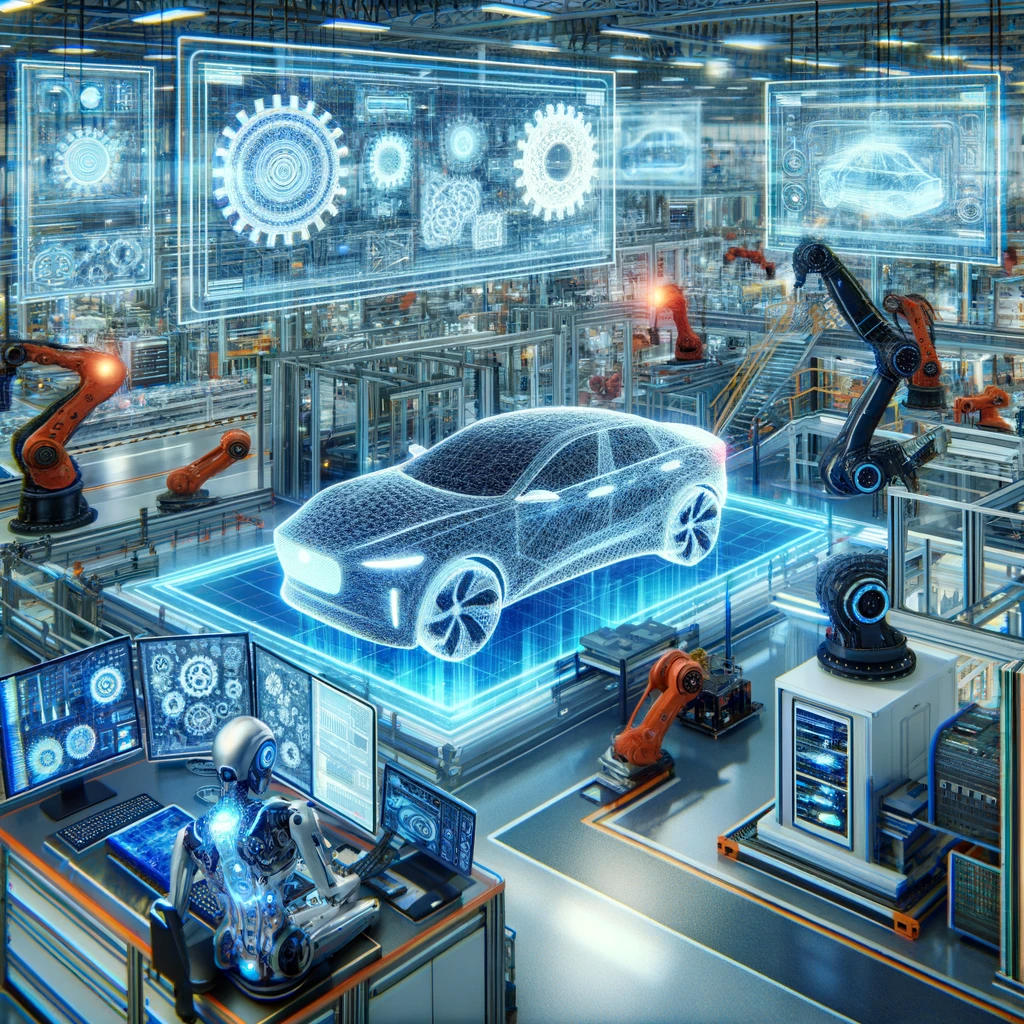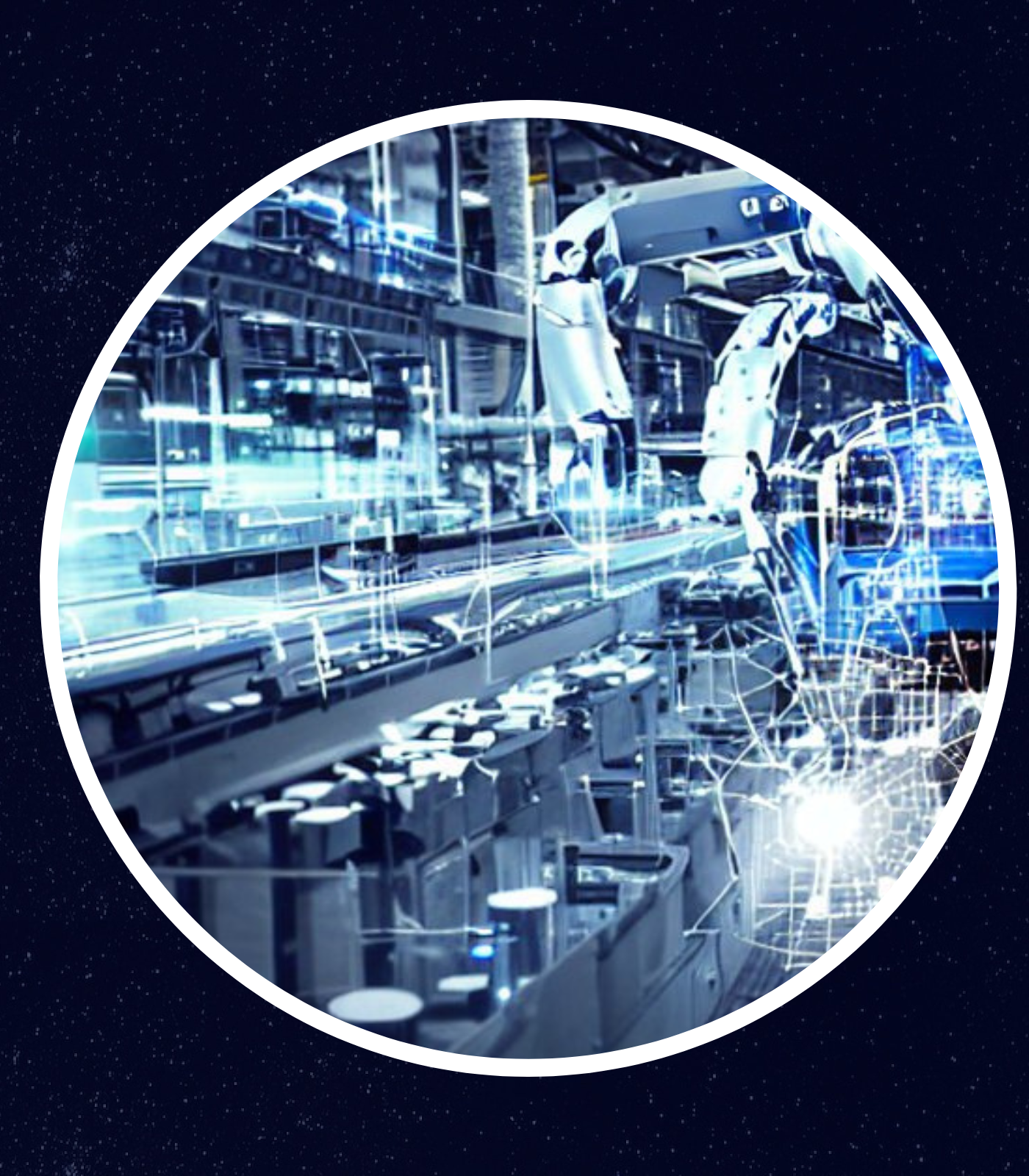The Challenge
In high-throughput manufacturing, undetected quality issues frequently lead to costly waste and downtime, significantly impacting profitability. For many years, a leading manufacturer had collected extensive...
The incorporation of Generative AI into manufacturing represents a significant evolution from traditional machine learning techniques. Its advanced capabilities in processing complex data and generating new content provide transformative benefits. This article showcases these advancements with detailed examples, emphasizing the unique capabilities of Generative AI that surpass older machine learning methods.
In Automotive Manufacturing: Unlike traditional machine learning that focuses on structured data, Generative AI can assimilate and interpret customer sentiment from unstructured reviews, images, and videos. For example, it might create new car designs by understanding nuanced customer emotions and preferences expressed in online forums, a task beyond the reach of conventional data analysis methods.
For Electronics: Generative AI can synthesize diverse unstructured data sources, such as free-text technician notes and circuit diagrams, to predict potential design flaws. This goes beyond traditional machine learning's capacity, enabling the creation of predictive models that anticipate and rectify design issues before they manifest.
In Customer Service for Home Appliances: Leveraging natural language processing capabilities far exceeding traditional systems, Generative AI can understand and respond to complex customer queries with a high degree of context awareness. For example, it could generate dynamic troubleshooting guides based on a customer's specific problem description, a level of customization traditional chatbots can't achieve.
For Internal Reporting in Manufacturing: Generative AI can autonomously generate insightful reports by interpreting and correlating data from disparate sources, such as financial records, employee feedback, and production metrics. This ability to create cohesive narratives from unstructured data sets is a significant leap from traditional data aggregation methods.
In Furniture Manufacturing: Generative AI can process vast amounts of unstructured data from social media, ergonomic research, and consumer trends to generate innovative furniture designs. This involves creating new design concepts that traditional machine learning tools, which typically analyze existing patterns, wouldn't be able to conceive.
For Sports Equipment: Generative AI can invent new materials and design prototypes by analyzing and combining data from disparate sources, such as athlete performance metrics and materials science research. This capability to 'generate' new ideas and concepts is a distinct advantage over traditional machine learning's predictive analytics.
 In the Fashion Industry: Beyond analyzing trends, Generative AI can create entirely new fashion designs by understanding current style preferences, material innovations, and sustainability concerns. It can imagine and visualize fashion items that align with emerging trends, a creative process not achievable with traditional data analysis tools.
In the Fashion Industry: Beyond analyzing trends, Generative AI can create entirely new fashion designs by understanding current style preferences, material innovations, and sustainability concerns. It can imagine and visualize fashion items that align with emerging trends, a creative process not achievable with traditional data analysis tools.
Credit: ChatGPT
In Automotive Accessories for Luxury Brands: Generative AI takes customization to a new level by not just analyzing customer preferences but also creating personalized accessory recommendations. It can generate unique accessory combinations and visualizations tailored to individual tastes, something traditional machine learning approaches cannot do.
 In Pharmaceutical Manufacturing: Generative AI can predict the impact of slight variations in manufacturing conditions on drug efficacy by generating and analyzing hypothetical scenarios. This predictive modeling extends beyond traditional machine learning's capacity to analyze existing conditions, offering proactive quality control solutions.
In Pharmaceutical Manufacturing: Generative AI can predict the impact of slight variations in manufacturing conditions on drug efficacy by generating and analyzing hypothetical scenarios. This predictive modeling extends beyond traditional machine learning's capacity to analyze existing conditions, offering proactive quality control solutions.
Credit: ChatGPT
For Food Processing in Bakeries: Generative AI's ability to simulate and visualize different baking conditions and their outcomes enables the creation of optimal production processes. This is a step beyond traditional machine learning's reactive analysis, offering a proactive approach to quality control.
The integration of Generative AI into manufacturing opens up possibilities far beyond the scope of traditional machine learning. By leveraging its ability to interpret complex data, generate new content, and create innovative solutions, Generative AI represents a significant leap forward, promising to revolutionize manufacturing processes and products. This advanced approach empowers manufacturers to explore uncharted territories in efficiency, creativity, and customization.

DROPS, AI, Manufacturing, AWS, Data Science, ODS, Extrusion
In high-throughput manufacturing, undetected quality issues frequently lead to costly waste and downtime, significantly impacting profitability. For many years, a leading manufacturer had collected extensive...

DROPS, AI, IOT, Generative-AI, Manufacturing
The incorporation of Generative AI into manufacturing represents a significant evolution from traditional machine learning techniques. Its advanced capabilities in processing complex data and generating new content provide...

Automation, DROPS, AI, IOT
In the manufacturing industry, operational efficiency is crucial for maintaining competitiveness. Companies have long relied on LEAN manufacturing principles to minimize waste and maximize productivity. However, rapid...